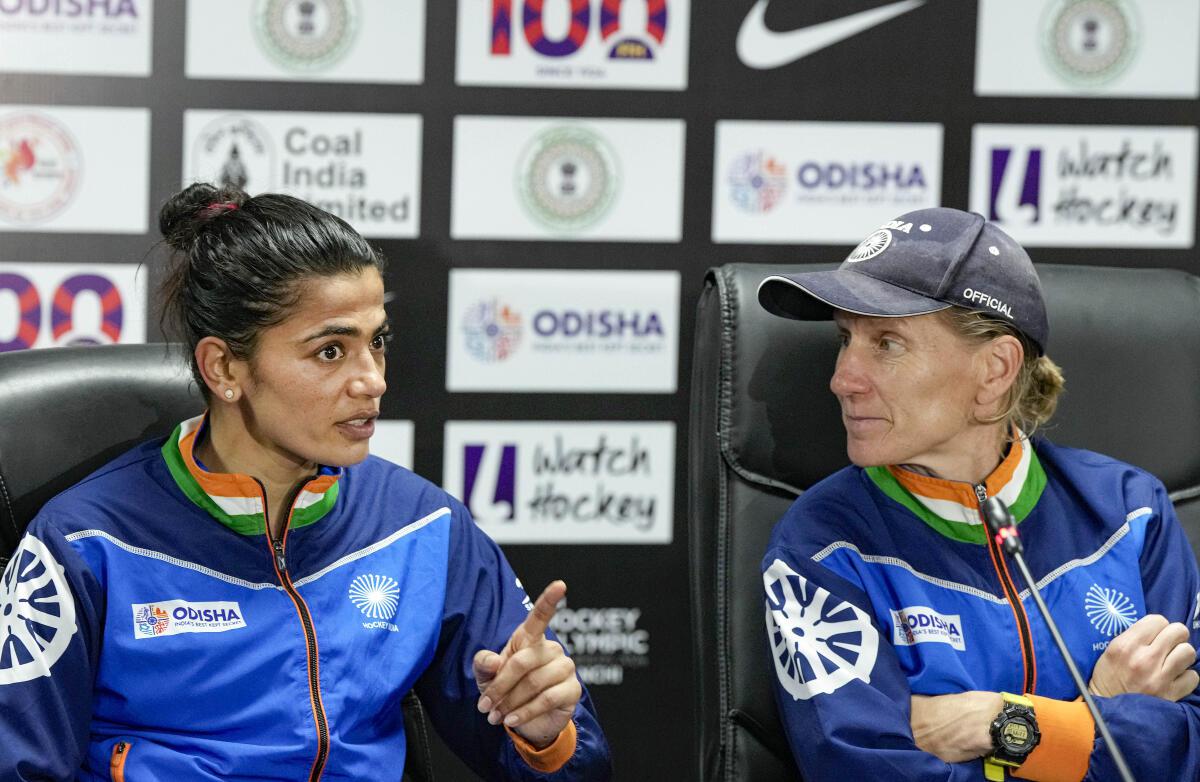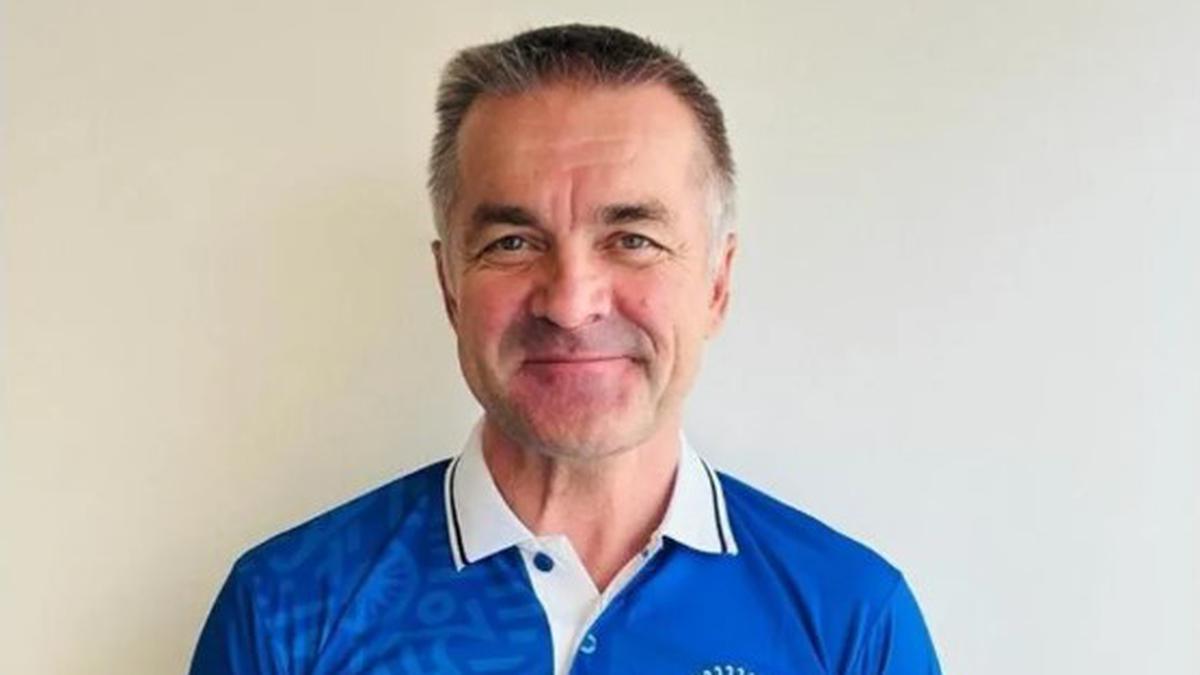Mental conditioning coach Peter Harberl key to India’s turnaround in FIH Olympic Qualifiers
Seeking the services of American psychologist and mental conditioning coach Peter Harberl, following a disappointing Asian Games, has played a significant role in the Indian women’s hockey team’s turnaround in the ongoing FIH Hockey Olympic Qualifiers.
Harberl, from Colorado Springs in the United States of America has been working with India’s chief coach Janneke Schopman since last October on a part-time basis.
According to India captain Savita Punia, hiring Harberl was a masterstroke. “It was really helpful because during the Asian Champions Trophy we noticed how much his (Herberl) sessions were beneficial for us as an individual and as a team,” Savita said on the eve of India’s semifinal against Germany.
“In the Asian Games, we went with a lot of positive mindset and the team deserved to book Paris ticket from there. The chances were there. The team is a mixed of senior and junior players and when you expect something, and it goes out of your hand, it feels disappointing.
“After the Asian Games, Peter has worked a lot in developing a positive mindset of the players, individually and as a team. Whenever we needed to talk to him he was available online. The best part about him is his calm personality. His message to us is that ‘life won’t stop, life moves on’ and that’s what we have learnt from him,” she added.
A retired professional ice hockey player, Haberl began his coaching career with the US women’s ice hockey team as a sports psychology consultant from 1996 to 2006, and has since worked for the US Olympic Committee from 2001 to 2005 and a senior sports psychologist with the US Olympic and Paralympic Committee from 2005 to 2023.
India’s chief coach Schopman, who worked with Harberl for the US women’s team, too acknowledged the contribution of Harberl.
“After the US match the girls had their own meeting and then I had a meeting with Peter, and he came up with a plan. He was instrumental in that (turnaround) I think. After that our vision was a lot positive. We did a bit of individual reflection and from that moment on they were ready.
“Mental health is the most important thing and it is something I am trying to be mindful. It is important for me what is going on. If they want to share it is fine, if not, it’s okay, but the ability to express is important,” she said.
“Of course, it’s not always easy, there are going to be tough times and struggles but they have overcome a lot. I think sports is a metaphor for life, which means every skill you learn on and off the field will help you in the rest of your life.”

Indian women’s hockey team captain Savita Punia with head coach Janneke Schopman during the pre-match press conference.
| Photo Credit:
PTI
Indian women’s hockey team captain Savita Punia with head coach Janneke Schopman during the pre-match press conference.
| Photo Credit:
PTI
With World No.5 Germany standing between India and an Olympic berth, Schopman asked her players to play to their strengths on Thursday. “Yesterday we had a tough game, Italy put us to work and we responded well. We are getting ready, we know Germany well. In summer we played them in Spain. They have very good individual players, they have got very good individual skills.
“They defend really well, but if we play to our strengths and focus on ourselves, we can also hurt them a little bit,” she said.
“There were eight teams vying for top three spots but now we have four teams fighting for that opportunity. I think we just have to show up. Germany is good we know that, we have played them. We need to defend really well, if we can play to our strengths, that is attacking hockey, let’s see what happens.”
Schopman was full of praise for the Indian defence’s performances against New Zealand and Italy. “They did a very good job. But if our strikers and defenders can play to their strengths, we can cause some problems for Germany,” Schopman said.
“Our defence needs to be on par, we can and we have been practising a lot. They have very good threats on top of the circle. Germany loves to have the ball and what is important for us is to pressurise them a lot, keep the ball and threaten them a little bit,” the Dutch said.
Savita believes the team needs to approach Thursday’s match with a positive mindset. “Room for improvement is always there with every team. We are improving match by match. No team can play perfect hockey any day. What is important for us is unity and connection within the team.”



